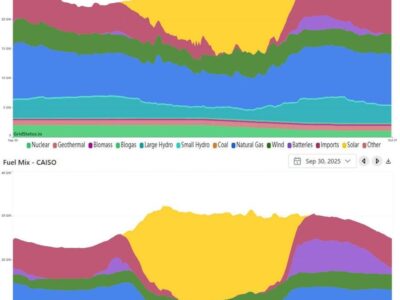A small bit of good news for the role of science and expertise
EPA decides not to appeal court ruling vacating directive excluding agency grantees from advisory boards
There’s not much good news about US environmental governance (or, really, US governance at all) these days. So it seems worth noting when even a small morsel shows up.
Today, EPA announced that it will not appeal a decision from the District Court for the Southern District of New York vacating a 2017 agency directive which forbade appointment of EPA grantees to advisory boards. EPA had touted the policy as a way to avoid conflicts of interest. Prominent science organizations, environmental groups, and Democratic politicians rejected that justification. Their view, as AAAS CEO Rush Holt put it at the time, was that the directive was “motivated by politics, not the desire for quality scientific information.”
The court first concluded that judicial review was available because there was law to apply in the form of the statutes authorizing advisory committees. It then found that the provision of the directive banning grantees from advisory boards was arbitrary and capricious.
The key problem was that EPA had failed to provide a “reasoned explanation” for departing from its prior policy, which allowed grantees to serve. EPA’s directive flat-out barred service by grantees in any form. The agency made no effort to show that existing policies and regulations requiring ongoing conflict of interest review and mandating that advisors recuse themselves from advising on any specific decision that might financially affect them did not adequately protect advisor independence.
It’s worth noting that the most controversial matters EPA’s science advisors opine on are important but general policy questions such as how strict air pollution standards should be or what waters should be under federal jurisdiction. It’s hard to imagine how holding a peer-reviewed research grant would give an advisor a financial conflict of interest on these topics. Grant funding doesn’t depend on the conclusion of the funded study, and indeed continuing to get grant funding requires that scientists do their best work, following the available evidence where it takes them.
It’s easy, on the other hand, to imagine that employees of regulated industries would have a financial stake in decisions about how much pollution should be permitted where. Yet at the same time it was issuing this directive, EPA was greatly expanding industry representation on its advisory bodies.
It’s definitely a good thing that EPA has decided not to pursue this particular battle in its ongoing war on science. But the impact is limited. EPA already used its directive to force a number of grantees off its boards, and has no obligation to invite them back. Indeed, the agency has almost unfettered discretion in its choice of advisors. One more reminder that elections matter.
At least, though, if the next election leads to a new administration, this is one less thing that administration will have on its plate as it works to resuscitate our critical governance institutions.







Reader Comments